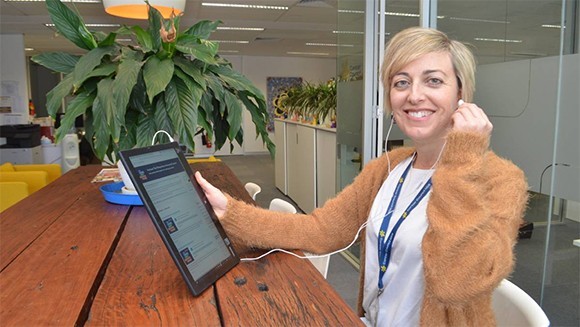Danielle Cetinski, Central Western Daily, 26 July 2019

CANCER is a tough topic regardless of the prognosis, but a series of podcasts has been developed to start the conversation when the outlook is most difficult.
The Thing About Advanced Cancer will focus on the challenges surrounding the diagnosis and doesn’t shy away from the hard questions on practical and existential topics.
Each podcast lasts about 15 minutes and covers what an advanced cancer diagnosis means, latest treatment options, eating well and managing pain and other symptoms.
There is also advice for carers in caring for someone with advanced cancer.
Hosted by cancer survivor and broadcaster Julie McCrossin, who presented the 2018 Alan Sisley Oration, the 10 episodes feature interviews with both cancer experts and people who have experienced advanced cancer.
It can be hard for residents with advanced cancer and their families to find trustworthy information that is also easy to understand.
Fiona Markwick
Cancer Council western area community programs co-ordinator Fiona Markwick said it was the first podcast series of its type in Australia.
“It can be hard for residents with advanced cancer and their families to find trustworthy information that is also easy to understand,” she said.
“The series aims to tackle some of the less-talked-about issues around advanced cancer and provide practical, evidence-based information in an informal way, to help people understand and cope with their situation.”
In some cases, Mrs Markwick said death had to be considered.
“It’s not something that’s talked about and I guess it’s putting those things at the forefront so [the patient’s] wishes and their family’s wishes are considered when they’re well enough,” she said.
Mrs Marwick said there was always a temptation to consult “Dr Google”, but it did not always deliver the correct answers.
“This is a platform anyone can access anywhere, even if they’re in the far west where they don’t have as much face-to-face support,” she said.
Ms McCrossin survived cancer in her tonsils, tongue and throat and said the topics would resonate with people with advanced cancer.
“Recent advances in cancer treatments, particularly the introduction of immunotherapy and targeted therapy drugs, mean that a growing number of people are living for a long time with advanced cancer,” she said.
She said the podcast was the perfect vehicle for the information.
“Cancer-related fatigue, brain fog and just feeling unwell can make reading books or online information more difficult, but listening to a podcast takes very little effort and can be done at a time and place that suits the listener,” she said.
The podcasts are available for download here and can be played online or through the podcast apps on smart devices.
Mrs Markwick said those without internet access could visit the Cancer Council’s Kite Street office to listen in.